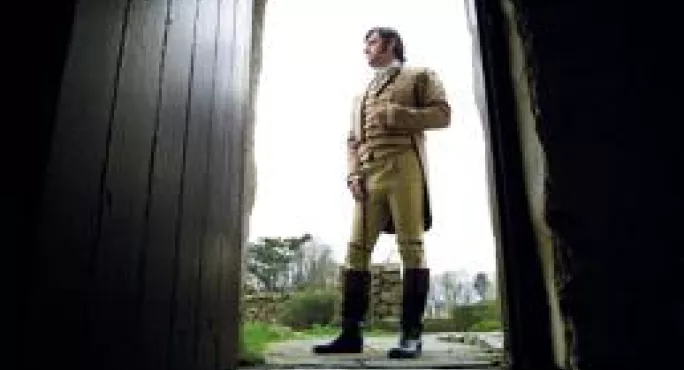The best-laid plans of Scots speakers.

Sunday is Burns Night, which means that huge numbers of people in Scotland and beyond will celebrate the poet’s life by reciting the verse that earned him worldwide appeal.
But this once-a-year showcase of the Scots language has traditionally sat uneasily with the scant opportunities to study it in Scottish schools during the rest of the year.
Now for the first time, a Scots qualification is being offered in schools. Yet despite that breakthrough, the language shows few signs of reaching beyond a small minority of students. TESS has also discovered that no teachers have attained “professional recognition” in Scots since an initial flurry of interest four years ago.
The new qualification was rolled out quietly in August and offered by three schools: Aberdeenshire’s Banff Academy, Gracemount High School in Edinburgh and Eyemouth High School in the Borders. Three others - Edinburgh’s Leith Academy and East Ayrshire’s Kilmarnock and Doon Academies - are offering stand-alone Scots units.
The modest beginnings recall the introduction of the new Scottish studies qualification which, as TESS revealed in November, was passed by only 159 students across Scotland in 2014. But backers of the language qualification - which can be taken at various levels, up to the equivalent of a Higher - see its very existence as a landmark.
“It’s the first time ever that there has been an officially sanctioned qualification in studying Scots language in our schools system - that’s really quite significant,” said novelist James Robertson, who has published books in Scots and helped to design the new award.
Even 10 years ago he would not have envisaged such a qualification receiving national backing, he said, and he expects uptake to grow considerably in 2015-16.
The new qualification was a “historic breakthrough”, according to John Hodgart, a former English teacher who is now secretary of the Association for Scottish Literary Studies’ education committee.
But although attitudes to Scots were “generally much more positive than a generation ago”, low uptake of Scottish studies suggested that “the vast majority of schools have yet to grasp the importance of a core element of Scottish culture across the curriculum,” he said.
In early 2011, the General Teaching Council for Scotland awarded professional recognition to 13 teachers for their expertise in Scots. But TESS has learned that no other teacher has been awarded that status since.
Tom Hamilton, GTCS director of education, registration and professional learning, said it was not the teaching council’s responsibility to promote professional recognition in Scots -teachers had to put themselves forward.
Alasdair Allan, minister for learning and Scotland’s languages, said “good progress” had been made recently in raising the language’s profile in schools.
Dr Allan, who in 1994 fought successfully to become the first university student to submit all exams and essays in Scots, also highlighted the importance of four Scots language coordinator posts recently established in schools - described by Mr Hodgart as another “crucial historical development” - and an app launched this month by Scottish Language Dictionaries.
Teacher and author Matthew Fitt said there was a huge appetite for Scots resources; with funding from Creative Scotland, he launched the Scots Hoose website in September to promote creativity and learning in the language. By early January it had recorded 10,000 unique visitors.
“It is definitely filling a gap in schools,” Mr Fitt said. “Teachers report that Scots language materials are thin on the ground and too time-consuming to source.”
Mr Robertson sees a mixed picture in schools overall, with the profile of Scots having dipped in some instances because of financial pressures. He was disappointed that the 2011 census did not result in more action to promote the language, after it revealed “amazing” figures: 1.5 million people in Scotland considered themselves Scots speakers.
Mr Robertson said it was difficult to predict the long-term future of Scots in an era of global communications, but believed that within the “bland” English that dominated the internet there were “cracks” where smaller languages could thrive.
Learning the lingo
Eyemouth High School has taught Scots for years. This year will be no different, but the new qualification has provided extra motivation for the 20 pupils in S4 who are working towards it.
“It’s the language of home,” says English teacher Rosie Daley, pictured. “They love to go back and speak it with their parents, or more often their grandparents.”
Some pupils find creative writing easier in Scots, as they are using their natural voice. “Boys in particular find it isn’t such hard work for them as writing in English,” Ms Daley says.
The students who are most interested sometimes do not have roots in Scotland. They may come from Berwick, or even Lithuania or Poland, and see a grasp of Scots as important for fitting in.
Scots offers plenty of scope for humour in the classroom, too. “The local word for crab is `poo’, and that leads to a few laughs,” says Ms Daley. “There’s an eatery near here that has `poo’s taes’ on the menu.”
Keep reading for just £1 per month
You've reached your limit of free articles this month. Subscribe for £1 per month for three months and get:
- Unlimited access to all Tes magazine content
- Exclusive subscriber-only stories
- Award-winning email newsletters



